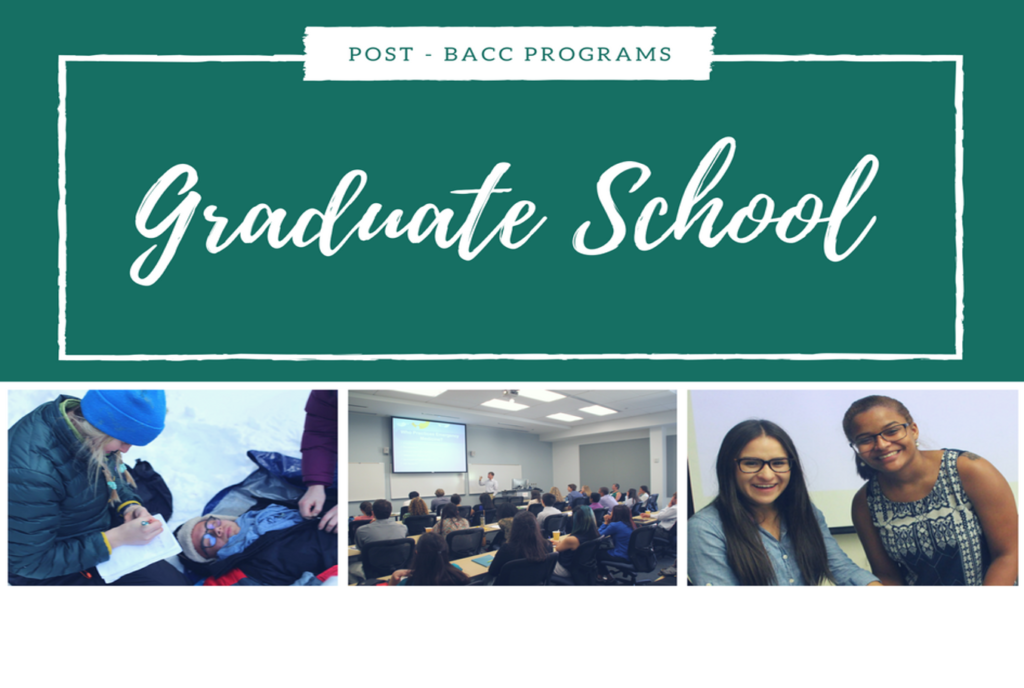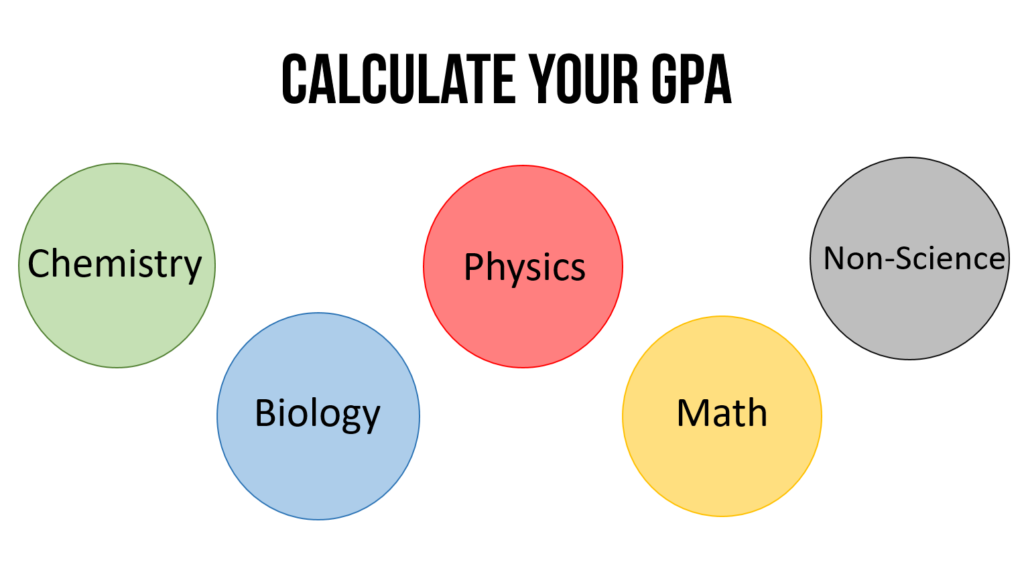[vc_row][vc_column][vc_column_text]By: Alessandra Santiago
The foundation for a pre-med undergraduate comes in the effort you put in to your time in the classroom. Doing well in challenging classes, electing to enroll in upper-division biology and chemistry courses, and successfully connecting the many academic disciplines that comprise medicine through your extracurricular work can demonstrate to an Admissions Board your seriousness as a candidate.
Designing a manageable yet rigorous pre-med course load can be done with the help of pre-med advisors at your school. This stage should be completed at the very onset of your academic career in college or even earlier, if high school advisors are available to you to give you a feel for what the medical path will entail.
According to CU Denver Senior Admissions Professional Karina Goodwin, non-traditional applicants can benefit from this advice as well.
“There are ways you can go about getting the appropriate courses that you need, while still having a non-traditional bachelor’s degree. We have current med students who have undergraduate degrees across the board: from nutrition to film to music to foreign language, and then of course, all of the sciences.
“We encourage they talk to their pre-med advisors: they’re going to have the best information, what our specific pre-reqs are, and are also familiar with our contact information. If students have any questions, they can reach out to us, too. We’re always receptive to that,” said Goodwin.
For career-changers or undergraduates with non-traditional degrees, this can mean working with an advisor to figure out what outstanding coursework you may need to complete outside of your alma mater at a community college or post-baccalaureate program. A list of these kinds of post-bacs can be found on the AAMC’s website.

Gauging Your Academic Metrics
Prior to applying, make sure you’ve undertaken—and done well in—all required and recommended coursework per your target schools’ requirements. It is especially important to calculate your Biology, Physics, Chemistry, and Mathematics (BPCM) and non-science GPAs, two metrics that Admissions Boards use to weigh a student’s academic success.
“Doing well in” a course means falling within or above a target school’s average GPA range for matriculated students. Individual school data can be found on the AAMC’s Med School Admissions Requirements site, where students can register for a yearly fee of $28 to access a school’s historical median MCAT and GPA scores.
At the onset of your application process, it is a good idea to compile a spreadsheet of target schools that includes information on academic metrics, progress on completed course requirements, and other data relevant to your application. You want to get a sense of where you fit in the range of matriculated students based on your BPCM, non-science, and cumulative GPAs, as well as your standardized test scores.

While you are doing your pre-requisite and academic soundness search, it is also a good idea to examine and log the residency requirements and financial responsibilities of each school while you are refining your search. You can read more about how to find a “good fit” for med school and determine your financial need in other articles of this series.
Demonstrating Commitment with Your Coursework
For each medical school program, double-check the required and recommended coursework on the AAMC website. Most schools require you to finish all required courses prior to matriculation, and some even require full completion of required courses prior to even applying. It is your responsibility to track your progress and understand the requirements for each school.
After checking your required courses, Goodwin recommends that applicants gauge their academic standing compared to recently matriculated students at that school. If you find that you fall below average in an important metric like your GPA, it may be worthwhile to enroll in additional courses as a boost to your GPA or in order to improve your understanding of the MCAT material.
Take a look at what Dr. Vaughn Browne Associate Professor of Emergency Medicine and Chairman of the School of Medicine Admissions committee, has to say on this topic.
Consider taking classes at your local community college or post-baccalaureate program, if it is your GPA that is lacking (we will be covering MCAT preparations in a future article).
“If it is something where [an applicant’s] GPA or their MCAT is low, and they want to make sure that they’re educationally sound, then you absolutely want to see that they were able to recognize that and took initiative to make themselves stronger academically by enrolling in a post-bac or community college courses,” advises Goodwin.
It is important to note that most med schools do not typically accept online coursework—especially for upper-division BPCM courses—to fulfill prerequisites, so researching in-person classes is encouraged. Some schools may accept high school AP credits to satisfy pre-med requirements, but it is highly dependent on the program and the school. Check first with each program.
A Final Word
Remember: the med school application process is highly competitive. Design your coursework early on, figure out where you stand in each program, and enhance your grades where necessary. Your best resource in proving your academic ability to Admissions Boards anywhere in the country comes down to how well you have researched and understood the ins and outs of the application requirements. Study hard, prepare early, and stay up to date to stay ahead of the curve.
| Make sure to have the highest possible GPA before applying to med schools, especially in upper division biology and chemistry courses (think: Biochemistry and Genetics). Taking academic enhancement courses can boost your GPA and improve your MCAT test-taking success. |
Want More Medical School Application Hacks? Sign Up Below to Receive Our Pre-health Newsletter!
Contact Form
